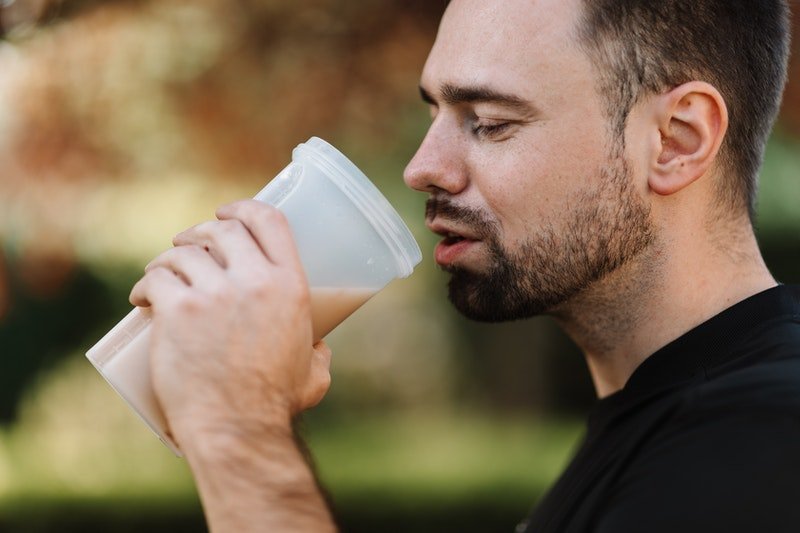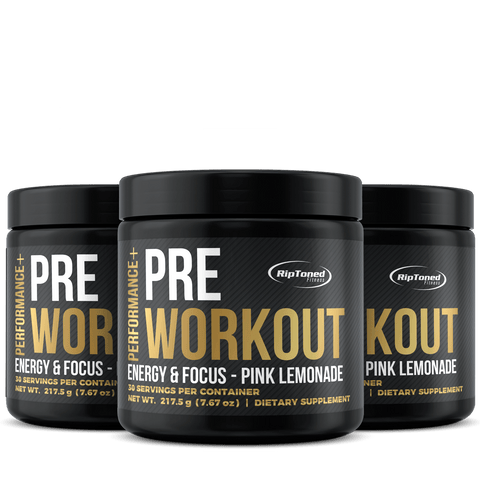
Is Pre-Workout Natty
Share
Are you looking for something to give your workout an extra edge? If so, then you may be considering pre-workout supplements.
As they become more popular among athletes and natural bodybuilders, it's important to understand what ingredients are in these products, especially if you're hoping to rely on natural or "natty" options.
In this blog post, we’ll be exploring what is considered “natty” when it comes to pre-workouts, as well as some of the benefits that come from using them.
We'll also uncover any safety concerns associated with specific ingredients in order to help you make informed decisions about supplementing your workouts.
What is Pre Workout Natty and what are its benefits?
When it comes to pre-workout supplements, the term “natty” generally refers to those that don't contain any banned substances or artificial ingredients.
In this context, natty is short for natural and typically means the product contains all-natural or organic ingredients.
Natural ingredients can help provide sustained energy levels without causing jitters, crashes, or other adverse effects.
These products often don't contain added sugars or caffeine, making them a healthier option for those looking to boost their physical performance.
Also, some pre-workout supplements contain ingredients shown to increase focus and alertness.
This can be especially beneficial for those who struggle with motivation or fatigue during workouts.
Furthermore, many natural pre-workouts include ingredients like beta-alanine or citrulline malate that have been found to improve athletic performance and endurance.
Is Pre Workout Natty
The answer to this question depends on the specific product you choose.
While some pre-workout supplements are marketed as natural or natty, it's important to read the label and do your research to ensure they truly meet these standards.
Some products may claim to be "all-natural" but still contain artificial flavors, sweeteners, or preservatives.
Additionally, certain ingredients in pre-workout supplements may not be considered natural, even if they are derived from plants or other natural sources.
For example, caffeine is a common ingredient in pre-workout supplements, but it's not considered a natural substance.
Plus, just because a product is labeled as natural doesn't necessarily mean it's safe for everyone.
Some people may have allergies or sensitivities to certain ingredients, and others may experience negative side effects from consuming certain pre-workout supplements.
Different types of Pre Workout Natty
There are several different types of pre-workout supplements that fall under the "natty" category.
Some may be specifically marketed as organic or all-natural, while others simply don't contain any artificial ingredients or banned substances.
Common natural ingredients found in pre-workout supplements include:
- Caffeine (from natural sources like green tea or coffee beans)
- Creatine (naturally found in meat and fish)
- Beta-alanine (found in foods like chicken, beef, and fish)
- Citrulline malate (derived from watermelon)
- B vitamins (from natural sources like whole grains and leafy greens)
It's important to note that just because a product contains natural ingredients doesn't mean it will be effective for everyone.
Different people may respond differently to various ingredients, and it's always a good idea to consult with a healthcare professional before starting any new supplement regimen.
Pros and cons of taking Pre Workout Natty
Pros:
-
Can provide sustained energy without jitters or crashes
-
May improve focus and motivation during workouts
-
Can contain ingredients that are beneficial for athletic performance and endurance
Cons:
-
Not all products labeled as "natural" may truly meet this standard
-
Some people may experience negative side effects from certain natural ingredients
-
May not be effective for everyone, depending on individual responses to ingredients
Ingredients in Pre Workout Natty
There are the most common ingredients that can be found in natural pre-workout supplements, but there are many others that may also be included.
Some of these ingredients, such as amino acids and vitamins, can have various benefits for overall health, muscle growth, and wellness.
However, it's always important to research the specific ingredients in a product and consult with a healthcare professional before consuming it.
This way, you can ensure that the most pre-workout supplements are safe and suitable for your individual needs.
How to make sure you get the right dosage of Pre Workout Natty
When it comes to taking pre-workout supplements, it's important to follow the recommended dosage listed on the product label.
Taking too much of a supplement can lead to negative side effects or potential health risks.
It's also crucial to be mindful of how often you are consuming pre-workout supplements.
While they can provide benefits for your workouts, they should be considered as something other than a daily or long-term solution.
It's important to also focus on maintaining a healthy and balanced diet, as well as getting enough rest and recovery, in order to see lasting results from your fitness routine.
Common side effects of taking too much Pre Workout Natty
While natural pre-workout supplements may be considered safer than those containing artificial ingredients or banned substances, they can still have potential side effects if taken in excess.
Some common side effects of taking too much pre-workout natty include:
-
Nausea and vomiting
-
Headaches
-
Dizziness or lightheadedness
-
Increased heart rate or blood pressure
-
Difficulty sleeping or insomnia
It's important to always follow the recommended dosage and monitor your body's response to any supplement. If you experience any negative side effects, it's best to discontinue use and consult with a healthcare professional.
Alternatives to taking pre-workouts
There are the best natural pre-workout options, but there are also alternative ways to boost your energy and performance during workouts.
Some ideas include:
-
Consuming a well-balanced diet with plenty of nutrient-dense foods
-
Staying hydrated before and during your workouts
-
Getting enough rest and recovery time between workouts
-
Incorporating natural energy sources like green tea or coffee into your pre-workout routine
-
Trying other supplements like BCAAs or creatine, which may also have benefits for athletic performance
It's important to remember that everyone's body is different and may respond differently to various strategies for boosting workout performance.
How to know if a pre-workout is natural or not
The best way to know if a pre-workout supplement is natural is by carefully reading the label and researching the ingredients.
Look for food products that are certified organic or made with all-natural bodybuilding ingredients.
Additionally, you can research the specific ingredients listed on the product label to ensure they are derived from natural sources.
If you have any health concerns or questions about a particular product, it's always best to consult with a healthcare professional before consuming it.
Plus, listening to your own body's response to a pre-workout supplement can also give you an indication of its naturalness.
If you experience negative side effects or feel uncomfortable after taking a supplement, it may not be the best fit for your body.
Overall, being informed and mindful about the products you consume is key in determining if a pre-workout is truly natural. Overall, while there are different types and options available, natural pre-workout supplements can provide a beneficial energy boost for your workouts.
FAQs
What is considered natty?
"Natty" is a term commonly used in the fitness community to refer to someone or something natural without the use of pre-performance-enhancing drugs or artificial substances. This can include ingredients in natural supplements and foods, as well as an individual's approach to training and nutrition. Overall, being "natty" means relying on natural methods for achieving health and fitness goals.
Is pre-workout natty safe?
As with any supplement, it is important to do your own research and consult with a healthcare professional before consuming pre-workout natty. While they may be considered safer than products containing artificial ingredients or banned substances, they can still have potential side effects if taken in excess. It's also important to follow the recommended dosage and anabolic steroids and listen to your body's response. Ultimately, safety depends on individual factors and a proper understanding of the product being consumed.
How often should I take pre-workout natty?
Pre-workout supplements, whether natural or not, should not be taken daily or for an extended period of time. They are meant to provide a temporary boost for your workouts, and it's important to also focus on maintaining a natural bodybuilder's balanced diet and rest/recovery. It's generally recommended to only take pre-workout natty 1-2 times per week, with breaks in between. Always follow the recommended dosage listed on the product label.
Conclusion
In conclusion, pre-workout supplements are not a one-size-fits-all situation. Everyone in the fitness world has different goals and needs in terms of performance and exercise as well as budget.
Those looking for a boost in energy levels and more muscle mass and power may consider taking natural pre-workouts like creatine or BCAAs. In contrast, those on a tighter budget should either look for an alternative or consider using the cheaper but less effective conventional pre-workouts.
Ultimately, making the right choice will come down to personal preference and researching what ingredients would be best for you.
So make sure you read the label on any products you purchase. If you still need clarification, speak to a qualified nutritionist or dietician about any concerns or questions regarding your pre-workout choice before hitting the gym!

Click here to try our Pre-workout supplement to feel the benefits it can do for your workouts.
